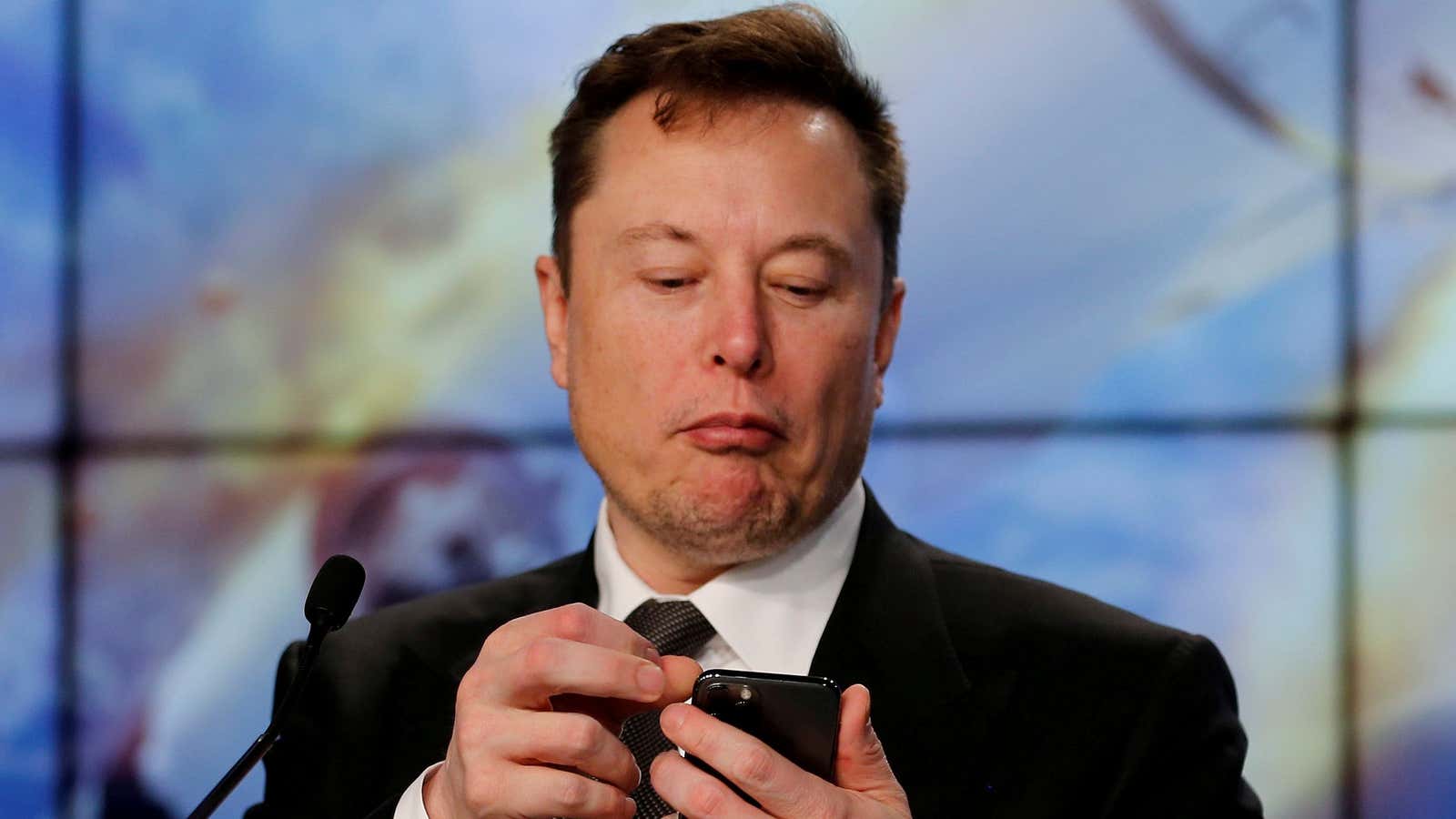What does Elon Musk’s attempt to acquire Twitter mean for SpaceX?
Walter Isaacson, penning a biography of America’s most (?) polarizing billionaire, reassured us that after the deal was inked, Musk was in Boca Chica for “his regular 10 pm meeting on Raptor engine design, where he spent more than an hour working on valve leak solutions. No one mentioned Twitter. He can multitask.”
Can you imagine a SpaceX engineer getting into M&A small talk when they are already working past 11 pm?
No, distraction isn’t the question for Musk, who would be on Twitter whether or not he owns it. The concern for SpaceX is what happens if that Raptor engine doesn’t work out. Just six months ago, Musk sent his staff a warning of potential bankruptcy if that engine couldn’t launch SpaceX’s Starship rocket twice a week in 2022, something that isn’t going to happen as long as the company’s launch site remains in regulatory limbo.
That means, as Musk admitted, SpaceX will need more capital. So will his purchase of Twitter affect his ability to find it?
Financing the Twitter purchase could limit Musk
Shareholders at Tesla, Musk’s publicly traded electric car firm, are clearly concerned about the transaction: Its share price fell more than 10% after the deal. Musk has put up his stock in the automaker as collateral for Twitter. Investors may be worried that he could lose control of Tesla if he faces a margin call on that loan. Right now, the stock is trading at $900, but if hits $740 or below, where it traded in August 2021, Musk may not be able to finance his loans and could find himself scrambling for cash.
SpaceX, meanwhile, is privately held. Investors I’ve spoken to say one reason it has been able to raise so much cash—in the neighborhood of $7 billion since 2002—has been confidence that Musk is the ultimate backstop for his beloved rocket company. If Musk’s fortune is stressed by his need to finance Twitter and maintain his Tesla ownership, it could prove more difficult to fundraise for SpaceX.
One potential consequence could be a faster-than-expected spin-out of Starlink, SpaceX’s satellite internet network. It’s Musk’s most marketable corporate asset, and likely to be generating hundreds of millions of dollars in annual revenue. What isn’t clear is if the operation is in the black, due to significant losses on user terminals.
Does SpaceX offer insight for how Musk will lead Twitter?
When I was first reporting on SpaceX’s early history, I was struck by Musk’s humility. He borrowed college textbooks to read, buttonholed mid-level engineers with wonky questions, and hired advisors with deep experience in space. Even people who later fell out with Musk acknowledged his desire to understand this complex new business.
Then, when people at United Launch Alliance or Boeing said that a reusable rocket would never be cost-effective, Musk could reply with knowledge gained from the test stand and speak the language of the business.
Right now, it doesn’t seem like he is cracking open texts on free speech, seeking advice from people who have thought hard about content moderation, or sitting down with Twitter’s trust and safety team to burn the midnight oil (though he is tweeting disparagingly about them, in apparent contradiction of the merger agreement.)
As Musk adds “social media” to the list of industries he’s seeking to conquer, it’s fair to say he’s not engaging with the conversations around how the medium works or why moderation polices are what they are. Yishan Wong, the former CEO of Reddit, makes a persuasive case that Musk doesn’t understand the terms of the problem he’s facing, which is not a political one.
The $44 billion deal isn’t expected to close for another six months.
A version of this story first appeared in Quartz’s Space Business newsletter.
